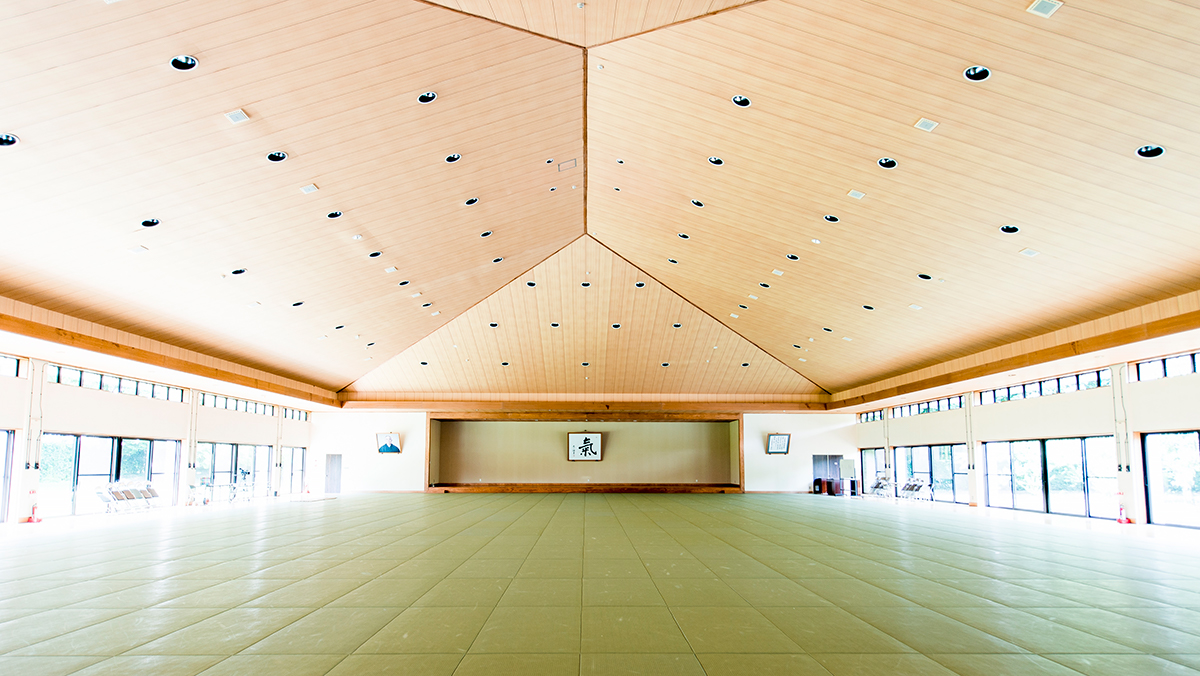This is an interesting story that I heard when I accompanied Koichi Tohei Sensei during one of his seminars in Hawaii.
During that trip, an American young man was observing a class with his mother and came to greet Tohei Koichi Sensei after the class was over.
The mother told us that, years ago, she had brought her child to the dojo during Koichi Tohei Sensei’s long stay in Hawaii to promote Aikido. At the time, the boy was very naughty, and his mother was concerned about this, and sought help from Koichi Tohei Sensei.
Tohei Sensei immediately remembered them, and they had a lively conversation. Especially for me, who did not know about those earlier days, the mother told me the following story in detail.
She said that when she first consulted Tohei Sensei about her child, she said, “My son is restless and misbehaves all the time. There is not a single good thing about him.” When Tohei Sensei heard this, he said, “Don’t worry, every child has good qualities.” Tohei Sensei decided to let him participate in the training to see for himself.
When Tohei Sensei met him in class, he found that he was not really able to pay attention and follow directions, and Tohei Sensei confirmed that he was a very difficult boy. His mother, who was watching the class, had a look on her face that said, “See! Isn’t it just as I said?”
After practice, Tohei Sensei decided to talk to the child alone. The child must have thought that Tohei Sensei was going to be angry with him, and so he shrank with shame.
Tohei Sensei said to the boy, “I tried to find your good points, but today I couldn’t find them. However, next time I will find them for sure, so be sure to come back to practice again!” The child was relieved to find that Tohei Sensei was not angry with him, and said, “All right! I’ll come back!” and left with big smile.
After that, the child started practicing attentively. Whenever Tohei Sensei found a good point in the boy’s practice, he would say, “I found a good point!” and he would identify it to the boy. The mother, who was observing the practice, watched this exchange.
Little by little, the boy began to calm down, and the behaviors that had been bothering his mother became less and less. Seeing this remarkable change, the mother became aware that she had been consciously looking for the child’s bad points.
When it came time for Koichi Tohei to return to Japan, the boy and his mother came to bid him “goodbye,” and the boy cried and would not leave Tohei Sensei’s side.
Twenty years later, that “bad boy” had become a fine young man.
The mother also said that her now grown child was “a proud son who loves his parents”, and tearfully thanked Koichi Tohei Sensei, saying that “that experience with you changed our lives”.
The expression on the face of the mother and son at that time left a deep impression on me.
The Lesson:
“Finding good points and supporting others”, rather than “finding bad points and scolding others” may be easy to understand in our head, but it is not easy to do in daily life.
This is because to discover those good points in others, we must take the time and effort to find out what is good about the person. Often it is not possible to understand a person just by spending a little time with them, without looking at them lovingly and carefully.
Only by calmly understanding another person can we support their development. Therefore, practices such as ‘keeping one point’ and ‘Ki breathing’ are of great help.
If you just want to point out what is wrong with someone, it does not require that much effort. It is easy to fall into this trap because it seems so straightforward and clear. However, just pointing out what is wrong will never make it better.
The same is true in the practice of Shinshin Toitsu Aikido. Simply pointing out what is wrong with a student cannot be called teaching. Teaching is about “guiding the other person until he or she can do it”, which is what instructors need to practice all the time.
The Japanese former baseball star, Tatsuro Hirooka simply says, “What is good is good, what is bad is bad”, and he looks carefully at “how to make the person better” and continues to think about it. Once he has made up his mind to train someone, he will take care and continue to support them until the end.
I feel that this is what I should be doing as a leader.
Sometimes, I forget, and look at the ‘lacking areas’ of the other person. When this happens, I remember to return to the basics of ‘finding the good points’.
Edited by: C. Curtis
Hawaii Ki Federation
https://www.hawaiikifederation.org/

